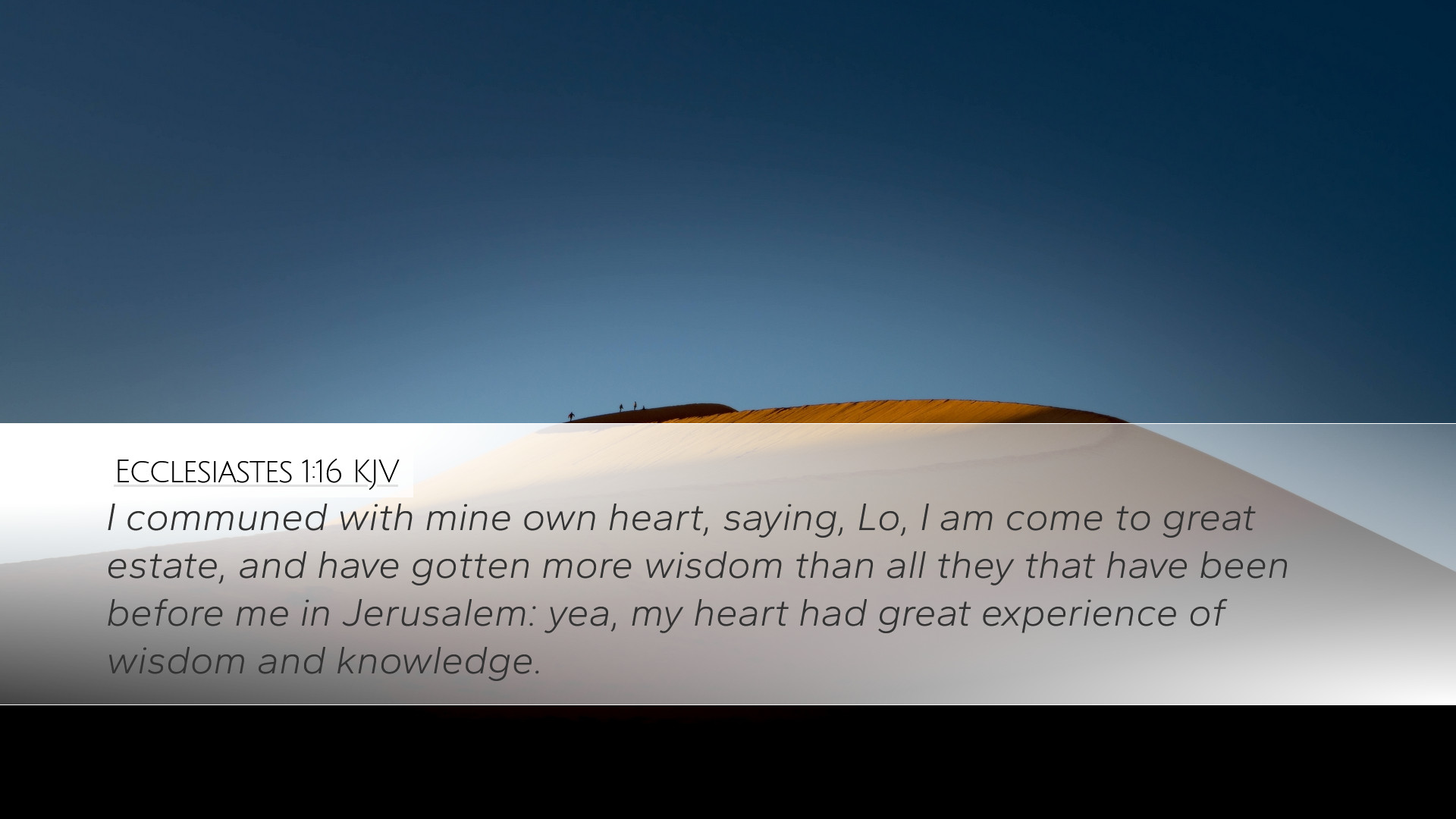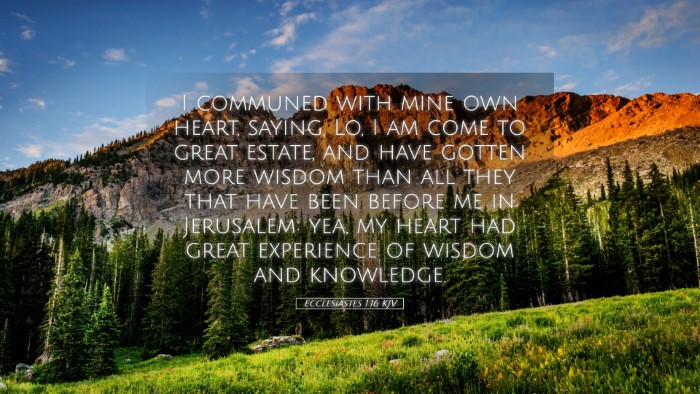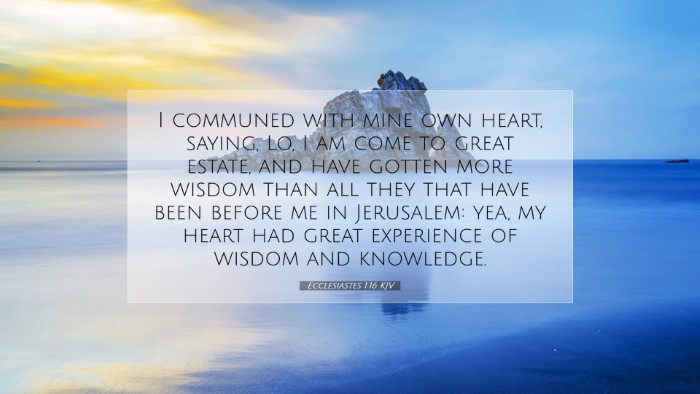Commentary on Ecclesiastes 1:16
Verse Text: "I said in my heart, 'I have acquired great wisdom, surpassing all who were over Jerusalem before me, and my heart has had great experience of wisdom and knowledge.'
Introduction
The verse in Ecclesiastes 1:16 serves as a reflective statement by the author, traditionally attributed to Solomon, regarding the pursuit of wisdom and the conclusions drawn from such a quest. This commentary synthesizes insights from notable public domain theologians such as Matthew Henry, Albert Barnes, and Adam Clarke to provide a comprehensive analysis for the reader.
Wisdom and Knowledge
Matthew Henry notes that the author's declaration of possessing greater wisdom than all previous rulers of Jerusalem illustrates a profound sense of pride and self-awareness. He emphasizes that wisdom is a double-edged sword, providing both insight and the burden of understanding life's complexities. Henry argues that the pursuit of wisdom can lead to deeper existential questions and may reveal the futility of human endeavors.
Albert Barnes comments on the context of the verse, indicating that Solomon's wisdom, granted by divine favor (1 Kings 3:12), was meant to serve the welfare of his people. Barnes posits that this acknowledgment of wisdom reflects a significant aspect of self-reflection where the wise must grapple not only with their achievements but also the responsibilities that accompany such gifts. Barnes suggests that wisdom without humility is prone to lead toward arrogance and isolation.
Adam Clarke provides an exegesis focusing on the concept of "great experience of wisdom and knowledge." He explains that true wisdom is manifested not merely in intellectual understanding but in lived experience and application. Clarke stresses the importance of humility and warns against a narrow reliance on intellect devoid of spiritual awareness and communal wisdom.
The Nature of Wisdom
- Human Limitations: All three commentators highlight the inherent limitations of human wisdom. Ecclesiastes often returns to the theme of "vanity" or "vexation of spirit," suggesting that earthly wisdom is ultimately not sufficient to provide lasting fulfillment or meaning.
- The Search for Meaning: The verse conveys an existential question: What does it mean to be wise? The pursuit of wisdom is not merely academic but deeply personal and spiritual. Each commentator reflects on the implications of wisdom seeking to navigate life's uncertainties and moral complexities.
- Divine Wisdom vs. Human Wisdom: Henry emphasizes the necessity of divine wisdom as a contrasting backdrop to human intellectual pursuits. While earthly wisdom may offer temporary insights, it ultimately falls short when scrutinized against the wisdom of God, which is perfect and eternal.
Lessons for Modern Readers
Self-Reflection and Accountability: The wisdom articulated in Ecclesiastes 1:16 calls modern readers, especially pastors and theological students, to engage in self-evaluation. In what ways are we seeking wisdom and knowledge? Are we allowing our achievements to overshadow a humble pursuit of truth?
Integrating Knowledge and Experience: The interplay of knowledge and lived experience is a vital aspect of true wisdom. Clarke's insights urge individuals to reflect on their personal journeys, combining academic knowledge with practical experiences. Such integration helps in the formation of a holistic understanding of life and leads to more effective pastoral care and teaching.
Community Orientation: As Barnes alludes to responsibilities linked with wisdom, there is a universal call to serve our communities. The quest for knowledge should not lead to isolation but should foster connection and service among individuals, particularly within church settings.
Conclusion
Ecclesiastes 1:16 presents a profound exploration of wisdom through the lens of human experience. By synthesizing the insights from Matthew Henry, Albert Barnes, and Adam Clarke, this commentary underscores the importance of humility, integration of wisdom and experience, and the communal nature of knowledge. As we reflect on Solomon's declaration, may we be drawn towards a wisdom that transcends mere intellectual pursuits, leading us into deeper relationships with God and one another, ultimately reflecting the characteristics of divine wisdom.


